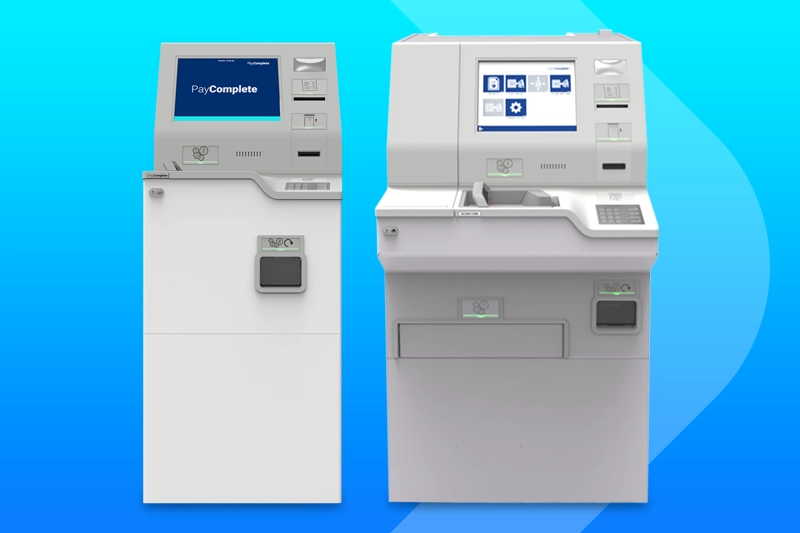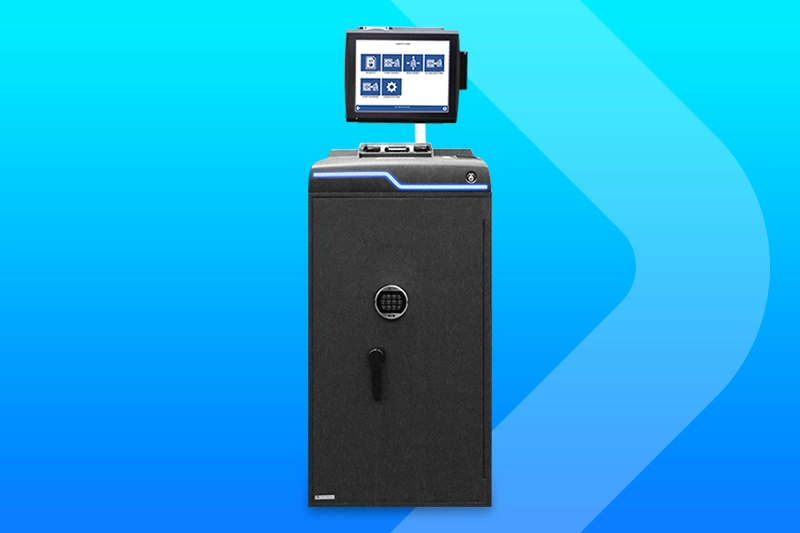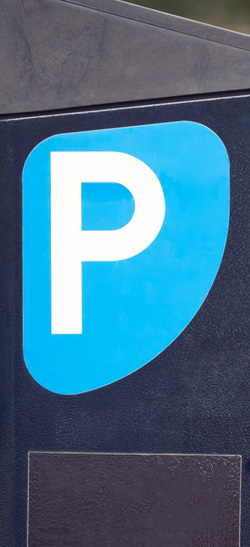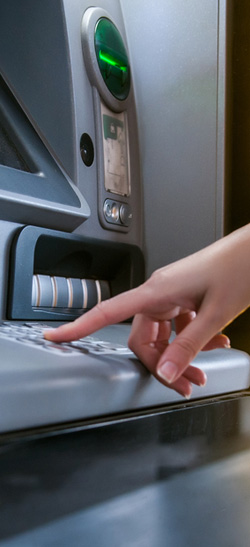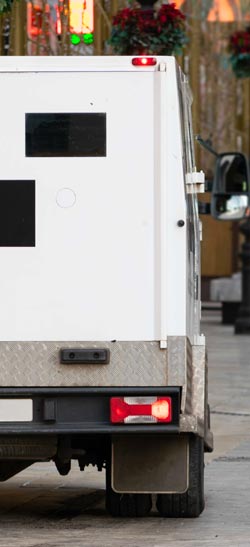Did you know many retail payments are still being made with physical cash? This is why cash management should be a top priority for retail stores.
The vast majority of independent retailers in the UK continue to accept coins and banknotes, despite the rise of digital and card payments – with cash accounting for over 20% of retailers’ sales revenue.
Therefore, developing a good cash management process to streamline cash management using cash automation technology can have a big impact on this. This is also known as CashTech.
Let’s take a closer look at why effective automated cash management technology is so important for retail operations.
What is Cash Management?
Cash management refers to the handling and managing of coins and notes, especially within the retail environment. It includes activities such as:
- Creating Receipts
- Disbursements
- Counting Money
- Recycling Money
- Safeguarding Money (i.e., putting it in safes or vaults)
- Transporting Money (Cash-In-Transit)
All of these processes must be carried out securely, efficiently and accurately to avoid cash discrepancies, prevent employee theft, reduce operating costs and maintain customer satisfaction.
The goal is to understand the entirety of the cash estate in real-time, as well as securely maintain the right amount of money in-store or in transit at any given time.
What is Cash Handling?
Cash handling encompasses every step involved in the handling, processing and storage of cash.
This includes everything from accepting cash payments to safeguarding them until they can be deposited in a bank or accounts for financial records.
The overall goal is to reduce cash discrepancies, prevent theft or other revenue loss, and maintain accurate financial reporting.
Cash Management vs Cash Flow Management
Cash management and cash flow management are two different but complementary areas of cash payments.
Cash management relates to the management of physical cash. This includes cash handling plus the planning, recording, and analysing of all activities surrounding cash payments.
Cash flow management, by contrast, refers to monitoring, analysing, and improving the movement of capital (not necessarily physical cash) for organisations.
In other words, cash flow management includes cash management, which includes cash handling. So, improving any one of these areas can have a positive influence on the other two.
Whilst cash management and cash flow management are different concepts, they are both often used interchangeably.
Aspects of Retail Cash Management
Cash management encompasses a broad range of practices and strategies that organizations use to control and optimize the flow of cash. Below are several key aspects:
Cash Acceptance
Point of sale (POS) systems help streamline various transactions, including cash payments.
They enable stores to accept cash whilst automatically calculating costs, producing receipts, and (if integrated well) updating inventories.
Their cash registers also securely store cash, while keeping transaction records and analytics.
Refilling Cash Registers
Avoiding cash flow problems in a retail store involves checking the amount of cash and different denominations in each cash register at any given moment. There should never be excess cash or too little of it.
It often requires employees to be aware of their registers as they are accepting cash. Delays in these checks and refills can tarnish the customer experience.
Cash Counting
Cash counting can refer to the manual process done at POS in stores or larger scale counts done at the end of working days, weeks, months or even randomly.
The second type is often used to involve manually handling cash to count it. But, beyond a certain scale, this is time-consuming and is open to human errors.
So, today, most medium and large businesses use machines for quick, error-free counts. This can be done with traditional cash-counting machines or even coin-counting scales (machines that weigh money in order to count it), and more advanced systems.
Innovative cash-counting solutions can streamline operations, integrating seamlessly with broader cash management systems. Smart cash recyclers and automated counting solutions help businesses improve efficiency, reduce errors, and ensure real-time cash visibility.
By leveraging these technologies, businesses can save time, minimise shrinkage, and enhance overall financial security.
Record-Keeping
Detailed and accurate record-keeping is essential for cash management. It includes keeping cash logs (records of incoming and outgoing cash transactions), cash receipts, discrepancy reports, and more.
Accounting software can help businesses in the industry keep a clear paper trail for accounting due diligence.
There are several best practices to implement around keeping these records, including using employees’ signatures, noting the serial numbers of notes, and more.
Cash Security
Protecting cash involves secure storage, surveillance, protocol and more. In order to achieve this, a cash handling policy with strict cash handling procedures needs to be put in place. These help protect against external and internal theft.
Examples of security measures that can help include limiting access to handle cash to just a few personnel and random cash register audits.
Smart safes
A smart safe is a safe for securing and monitoring cash. Unlike regular safes, they are fitted with technology for ‘smart’ functions such as cash validation, counting, and monitoring.
Businesses that use them can track how much money they have at any given time as well as who has accessed them and when.
Smart safes can offer real-time tracking, automated reconciliation, and enhanced security, reducing cash shrinkage and improving efficiency. Many smart safes also feature bill validation technology, ensuring accuracy and protection against counterfeit fraud.
Transportation
Transportation is a part of the security aspect of the cash-handling process. It can be outsourced to cash-in-transit (CIT) companies who hold responsibility and liability for cash security whilst they are moving it.
Reporting & Analytics
There are several different ways in which cash management can be reported and analyzed.
Different retail businesses might favour different performance metrics. This could include, for example:
- Cash Reconciliation Rate
- Average Transaction Time
- Discrepancies Per Shift
These can be analysed against other trends to help optimise the cash handling process, employee training, and employee allocation.
Unique Challenges for Retail Cash Management
Although the fundamentals of cash management are similar across many industries, managing cash in the retail industry is unique for several reasons.
High Transactions Volumes
Retail stores experience a relatively high volume of transactions.
There will be an estimated 32.8 trillion dollars in retail transactions by 2026. About 1/5 of this is eCommerce, so the rest (the majority) are in-store.
Seasonality & Sales
Averages don’t always tell the whole picture. A retail business might make most of its money during certain peak periods. So, capabilities for dealing with peak cash handling requirements are essential for maximising sales.
High Employee Turnover
Retail has a relatively high staff turnover, with the average turnover rate in retail sitting at around 60%.
This has significant implications for several aspects of cash management, including:
- Efficiency & Accuracy of Cash Management in Retail Stores: New employees will likely be inexperienced with specific retail cash management systems and cash handling procedures.
- Employee Training Requirements: The frequency of training needs to keep up with the high levels of new workers.
- Security: More individuals having access to the cash handling process can unfortunately equate to more risk of internal theft.
Effective Cash Management Principles for Retail
From establishing a cash management policy to ensuring staff members are well-trained, there are three key principles for retail stores.
Cash Management Policy
Having an established cash management policy helps employees understand effective cash handling.
A business could, for example, ensure a till float (amount of cash in the register) of a precise amount suited to given days. This could mean double the amount is floated at weekends or during sales periods.
Related security measures should be similarly outlined. Cash counting and reconciliation might take place daily with two employees present at all times. However, perhaps during busy periods, extra ‘cash drops’ or staff must be involved.
Employee Training
Employee training can ensure staff members are equipped with the necessary skills to sufficiently handle cash. It can also help identify and correct bad cash-handling habits.
There are a range of different trainings to choose from. These might include:
- Cash Handling Skills (such as money counting)
- Security-related skills (such as counterfeit detection training)
- Software Training
- Customer Service Training
- Cash Forecasting and Budgeting
Automation
Automation can transform cash management in stores. It can take place in several areas of the cash management process, including:
- Receiving Cash (with self-service checkouts)
- Counterfeit Checking
- Cash Counting
A good cash management system can also be integrated with other accounting and inventory software. This can ensure that register refills, bank deposits, and other manual processes are handled with the utmost precision. It can also include other payment options that include credit or debit cards.
PayComplete’s Cash Management Solutions
PayComplete offers cash management solutions designed specifically for retail operations that operations, enhance customer experience, and streamline financial processes. At the core is PayComplete Connect, a powerful SaaS platform that integrates seamlessly with a variety of retail touch-points, including kiosks, self-checkout systems, traditional POS, and cash recyclers.
With PayComplete Connect, businesses can automate routine cash-handling tasks, reduce queues, and free up staff for more meaningful customer interactions. The platform provides real-time visibility into cash flow and operational performance, enabling data-driven decision-making to improve efficiency and security.
Conclusion
Effective cash management remains a critical component of retail success, ensuring smooth transactions, operational efficiency, and financial security.
As cash continues to play a significant role in retail payments, businesses must adopt modern solutions to streamline their processes, reduce human error, and enhance security.
By leveraging automation and data-driven insights, retailers can optimise their cash handling and improve overall efficiency. PayComplete provides innovative, scalable cash management solutions tailored to retail businesses of all sizes.
Discover how PayComplete Connect can transform your cash operations – contact us today to learn more and take the next step toward smarter cash management.
For a retail business looking for tailored cash management solutions, discover how PayComplete’s CashTech offers innovative technologies that help retailers optimise cash handling, minimise losses, and enhance financial control.

Related Posts


